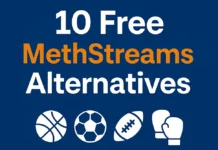If you’ve ever searched your name on Google, then you’re likely familiar with the massive amount of personal data stored in cyberspace. And if you want to get a more comprehensive picture, type in your name on Nuwber. It’ll provide a more detailed look into what you’ve disclosed in public throughout your life.
According to the Pew Research Center, more than 4 in 5 Americans believe that they have little control over personal data collected by companies and the government. But this shouldn’t dishearten you. A few extra measures might be all that you need to minimize your online data footprint.
But, why should you keep personal data from the public eye?
The internet, or more specifically Google, works with a single mission in mind—to make information accessible to all. Greater accessibility can improve opportunities to learn, work, and lead to better quality lives.
But it also leaves less room to maintain your privacy. Today, anyone with an inquisitive mind could intrude into your personal and professional life with a click of a button. Your contact details, social media activities, and even financial information and family details might be all available for anyone interested. And this isn’t just incredibly intrusive, it can also make you vulnerable to countless dangers, from stalking and extortion to identity and financial theft.
But that’s only what’s labelled as criminal activity. Keep in mind that businesses and governments are also interested in your data for various reasons. And they could use them for what’s often labelled as legitimate reasons. Sometimes it’s for national security or to provide an essential service such as credit checks. But it could also be for monetary gains.
The bottom line is, your personal information could exchange hands hundreds and thousands of times without your knowledge. And it’s impossible to predict its consequences in the long term. So, taking steps to minimize your data trail would certainly be worth the effort.
How to minimize your data footprint
There are mainly 3 types of data sources you need to remove from the public eye. And how you go about it will be unique to each data type.
1. Personal accounts
According to a Dashlane study, an average user has around 90 accounts. And chances are you won’t even remember half of them. So, start by listing personal profiles you have set up over the years, from news and shopping to email and social media accounts. Delete all unnecessary profiles, leaving only what’s essential.
Loyalty cards, memberships, and subscription services could also track your personal data, such as spending, product choices, and even payment details. So cancel all unused accounts to minimize your data exposure.
2. Content
Each individual piece of content you divulge could end up piling up into a dramatic mass of information that you may later regret. But deleting content could be more difficult than closing down personal accounts. While some might be within your reach, you might not have access to content published by certain third-parties.
So, start by deleting the information you can access. These can include your social media posts, website content, and blog articles. Even mobile phone apps and smart devices could collect and share your personal information. So, delete or edit their settings to ensure your data privacy.
Some third-party data sources such as data aggregators and brokers may often allow you to opt-out of their databases and publications. Check with them on their data removal policy and procedure and submit a request.
If all these seem a hassle, you can always get help from a paid information removal service such as DeleteMe. They can help protect your privacy by making removal requests on your behalf. And they’ll follow up, track and monitor your digital footprint and provide you with regular updates on progress.
3. Search results
Today, Google alone claims over 3.5 billion searches a day. Search engines play a central role in how information reaches the world. It’s how content is found most often. So, what turns up on search results demands much more attention.
Now, sometimes, deleted content could still turn up in search result pages. In instances like these, you can request the search engine to update its data library. There will also be moments when a web publisher may refuse to remove certain content. When that happens, you could request Google to remove those links from its search results. And if your request falls under their data removal criteria, they would proceed to accommodate it. For instance, they may delete explicit or exploitative content and data such as financial information that could make you vulnerable to fraud or theft.
Data privacy is not a one-time job
Removing information from public sources is certainly a time-consuming activity. But more importantly, it’s an ongoing process. To continue protecting your data privacy, control and minimize the information you divulge. Whether you’re sharing a photo on Instagram, posting a comment on Facebook, or signing up for a free newsletter, you’ll need to consider the long-term repercussions. Remember, responsible data sharing should start with you.
Having said that, going completely dark on the internet is no longer a choice either. Today, erasing your online presence is a near-impossible feat to achieve. Besides, it may not serve a purpose, anyway. Maintaining certain information in the digital space could, in fact, be beneficial sometimes. For example, if you want to become a social media influencer, build your own business, or scale the career ladder, having a strong professional online presence could have many positive effects.
So, the level of data privacy you require will depend on your individual needs and goals. Instead of attempting to erase your data footprint, averting the habit of disclosing excessive personal information and adopting a curated data-sharing practice might be a more prudent strategy. It could help you gain better control over what turns up on the internet and use it to your advantage instead.




